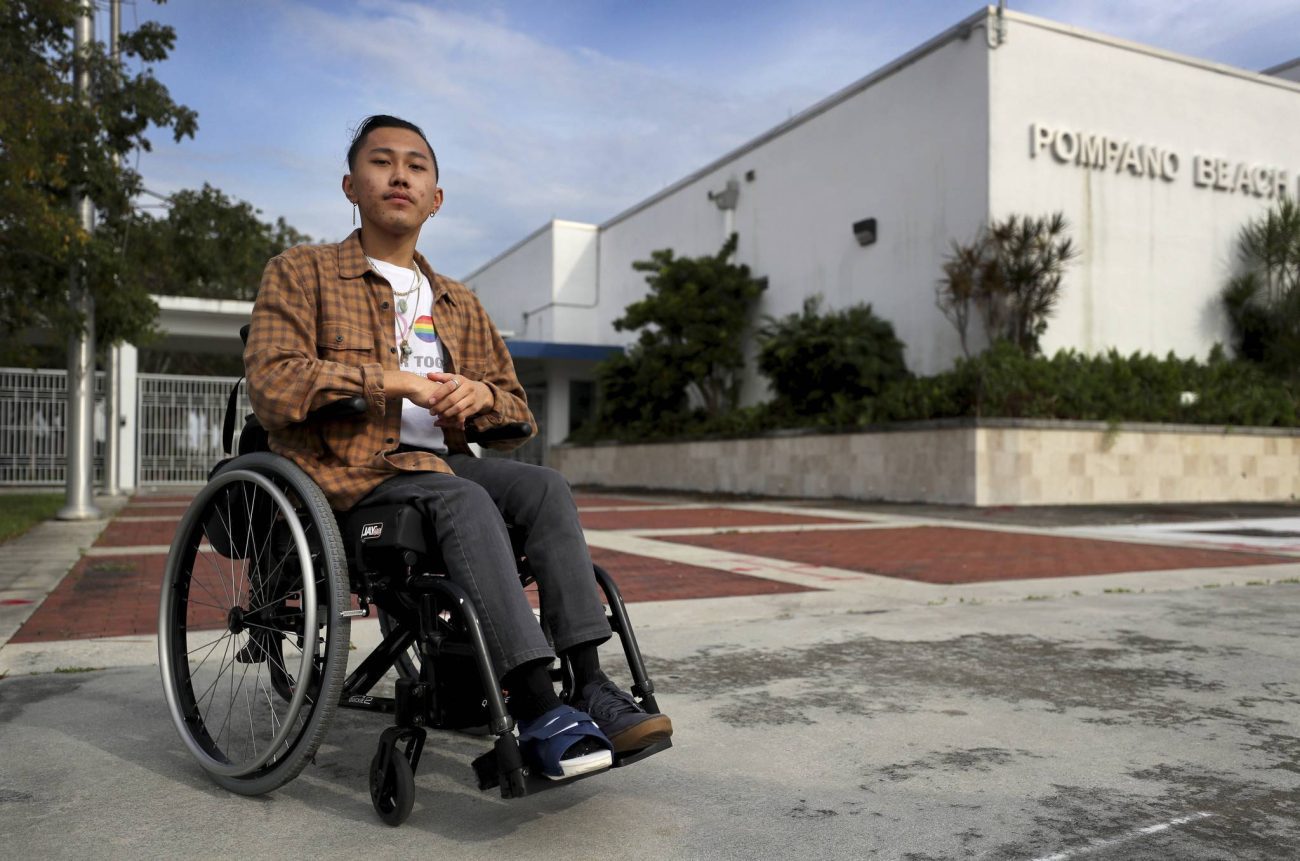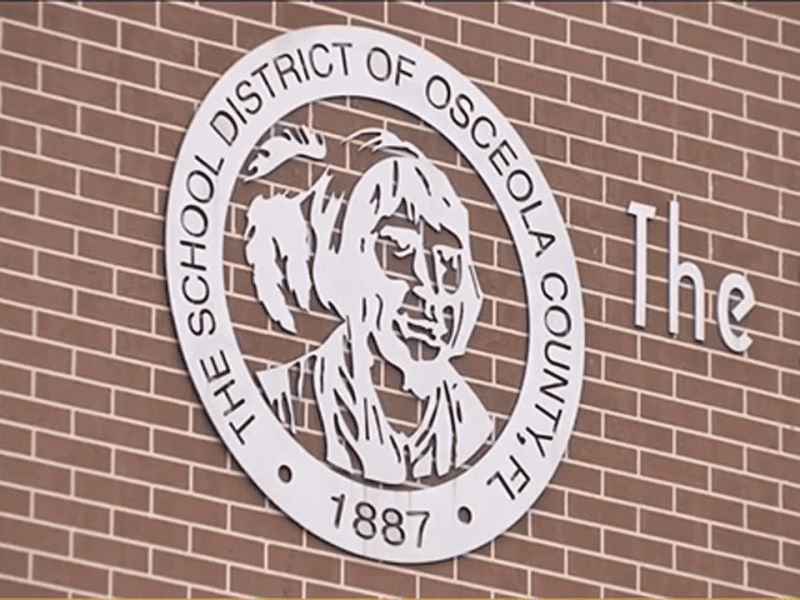
‘This is wholesale neglect’: Broward schools let elevator maintenance slide for years
South Florida Sun Sentinel | By Scott Travis | May 5, 2022
A Broward high school student desperately needed a working elevator so he could maneuver his wheelchair up to his third-floor classes.
But Samuel Vogel, a senior at Pompano Beach High, often found himself stuck because the school’s only elevator was routinely out of order.
“The elevator constantly breaks down, meaning it won’t work or won’t close properly,” he told theSouth Florida Sun Sentinel in October. “I have to push it closed. Throughout my high school years, when the elevator is broken, I have to wait for people to help me down all the floors, which is highly frustrating.”
Vogel had also noticed last fall that the certificate of operations placard — providing proof the elevator was in safe working condition— showed an August 2019 expiration date. The elevator had last been inspected in May 2018, when he was in the eighth grade, the card showed.
Such delinquencies have been the norm in the Broward County School District, a Sun Sentinel investigation found.
As of April 30, two-thirds of school district elevators — 162 out of 236 — failed to have a 2022 certificate of occupancy. This means either they haven’t been inspected in more than a year or their last inspection resulted in violations that have yet to be fixed. About three dozen have been out of compliance for more than a decade, with one elevator certificate expiring in 2006.
Reviewing inspections
The Sun Sentinel discovered the safety breach by reviewing records from the Broward County building department, which is tasked by the state with issuing elevator licenses and monitoring compliance.
Many of the district’s 71 wheelchair lifts, which are used to raise a disabled person onto a stage or platform, also are in disrepair. These go through a similar inspection process as elevators.
In Broward schools, the majority of these lifts — 62% — had expired certificates as of April 30, indicating they haven’t fully passed an inspection to ensure the safety of children or teachers who use them.Worse, many of them were broken. The Sun Sentinel reviewed the most recent inspections and found that 39%, or 28 total, were inoperable.
“This isn’t a quirk of circumstance or an anecdotal school here and there that lost their certificates,” said Jacqui Luscombe, who leads a district committee that advocates for special-needs students. “This is wholesale neglect, and it speaks to Broward schools’ lack of understanding of the needs of their students and staff.”
The numbers have improved slightly in recent months, after the Sun Sentinel’s inquiries.
The district started quickly scheduling the safety inspectionsin January, shortly after the Sun Sentinel asked why so many elevatorslacked a timely safety inspection or certificate. Most equipment has been inspected at least once in 2022, compared to only about a third that went through inspections in 2021.
Many inspection reports show elevators in a shabby state of repair — withfour or five violations, such as broken emergency lights and phones and doors that are prone to malfunction during an emergency.
John Sullivan, a spokesman for Broward schools, said the district is working with its elevator maintenance contractor to make corrections, “which include issues that are not considered safety-related, meaning the elevator is safe to operate while the issue/violation is addressed.”
He said this process started in 2020 after the district got a new maintenance vendor, not as a result of a media inquiry.
He said the district “is committed to the safe function of District elevators” and expects all elevators to be up to date by August 2022.
Sullivan said the district is evaluating wheelchair lifts that no longer function and is developing a plan to replace them. The district also plans to buy mobile wheelchair lifts that can be deployed to schools as needed, he said.
The school district’s issues haven’t caused any injuries in recent years, according to state records. Accidents are rare as “elevators are statistically the safest mode of transportation,” said William Redmond, chief elevator inspector for Broward County.
Still, South Florida has seen elevator-related tragedies outside of school systems, most recently with a fatal elevator accident Oct. 12 at an Aventura high-rise condo where poor maintenance was cited as a factor.
An elevator technician was crushed while working inside the Harbor Towers elevator shaft. An accident report found a “jumper” wire was used to bypass an inoperable pit stop switch. The elevator had failed multiple inspections and didn’t have a current certificate.
A Coconut Creek High elevator failed a May 2021 inspection partly because of the improper presence of jumper wires on the controller. The school district’s maintenance contractor fixed the issue prior to an inspection in February 2022, and the elevator now has a current certificate.
Pushing for elevator safety
All public elevators and wheelchair lifts are required to have up-to-date certificates under a state law known as the “Elevator Safety Act.” In most counties, the state oversees compliance, but Broward is one of five government jurisdictions in Floridawhere enforcement is local.
The elevator owner, in this case the school district, hires a state-approved third-party inspector to review its equipment yearly, and those results are forwarded to the county building department. If the elevator passes inspection, or if violations are corrected within 90 days, the county issues the owner a current certificate. These expire every Aug. 1 and must be renewed.
“I would be concerned if an elevator’s certificate has not been updated and kept current, absolutely,” Redmond said. “But I wouldn’t in and of itself deem it to be imminently dangerous to the riding public.”
He said the county seals any elevator that it deems unsafe. The county sealed off one district elevator, in the athletic stands at Western High in Davie, because of water damage from 2010 that was never fixed. Sullivan said it was abandoned “many years ago because it is beyond economical repair.”
If an elevator owner fails to get a yearly inspection or fix violations within 90 days, it can be fined up to $1,000 per violation, but records show the county building department has rarely fined the school district.
The department’s enforcement department “is currently concentrating on cases with very delinquent elevating devices who are not showing clear evidence of working to come into compliance in a timely manner. This is not the case with the School Board,” Redmond said.
He said there have been staff changes in the past couple of years, “and the new staff in charge has been very responsive and is diligently working with our office to come into compliance.”
Still, county records show the district has allowed many issues to linger for years.
A certificate on a Coral Springs Middle elevator has been out of date since 2006, longer than any other school in the district. The device was last inspected in December 2020, where it was found to be low on oil and the emergency light and phone were not functioning.
An elevator at Dillard High has been out of compliance since 2007. An October 2020 inspection showed it failed to have a fire alarm, an emergency light, a working phone and Braille numbers and letters for the blind.
Each elevator is required to display its certificate of operations in a conspicuous place. But when a Sun Sentinel reporter stepped on an elevator at Blanche Ely High in Pompano Beach on Oct. 26, the placard was missing.
:quality(70)/cloudfront-us-east-1.images.arcpublishing.com/tronc/E24XMDUOUBERNPJMZCJHY37G7E.jpg)
The certificate had been replaced by the time an inspector reviewed the elevator on Feb. 4. But other problems were found. The pit stop switch was not properly secured. The door restrictor, which prevents passengers from opening the elevator between floors, was inoperable. And a fire extinguisher tag, which shows when it was last inspected, was missing.
The issues are being fixed, district officials say.
“Since 2020, the Maintenance Department has been under new leadership, with structural changes within the department’s staffing, to include a position dedicated solely to overseeing District elevators and the ongoing inspection and certification process,” Sullivan said.
Facing challenges
At a School Board meeting in February, Mark Dorsett, executive director of maintenance for Broward schools, blamed the problems on Xpert Elevator Services, a Royal Palm Beach company that had the primary contract to service the district’s elevators from 2016 to 2020.
“We had a company that did not do justice for the elevator service and thus we lagged behind on some of the certifications,” Dorsett told the board.
But the district’s elevator issues predated Xpert’s contract, company President Dean Beckemeyer said.
“They’ve been behind forever,” he said. “When we first took them on, they were behind.”
Beckemeyer said his company frequently brought proposals to the district on issues that needed to be repaired to ensure the elevators were up to code. But they often got lost as the district dealt with management changes in the maintenance department. He said his company would do any work they were authorized to by the district.
“The School Board is not known as big spenders,” Beckemeyer said.
The school district contracted with a new maintenance vendor, global giant Thyssen Krupp or TK Elevator, for $520,000 in June 2020 and increased the amount to $4.3 million in May 2021.
But even under this contractor, who the district said had the capacity to oversee the large volume of work, maintenance problems lingered for at least 18 months. The district and contractor attributed the slow start partly to COVID-19.
“The global pandemic began in March of 2020, creating extreme challenges for many industries including elevator maintenance,” Sullivan said in an email. “These challenges have included having access to facilities during closures for COVID-19, maintaining qualified staffing (such as due to health concerns/issues), and supply chain delays that created shortages of necessary parts or equipment, etc.”
A spokesman for TK Elevator said the company has worked with the district to bring elevators up to date on annual inspections.
“Upon thorough evaluation, TK Elevator discovered numerous issues that required service beyond the scope of the maintenance contract,” company spokesman Dennis Van Milligen said. “TK Elevator has addressed all issues within the terms of the agreement and is working closely with the School Board to resolve all remaining issues.”
The progress has been too slow for Vogel, the disabled Pompano Beach High student, and his advocates. He was born with Spina Bifida, a condition where the backbone that protects the spinal cord doesn’t form and close properly.
Most of his classes have been on the third floor, he said. And he said he’s been briefly stuck up there because the elevator wasn’t working. He’s had to find an employee to carry his wheelchair and backpack while he used his limited mobility to walk down the stairs while he held on to the rail.
If the elevator was stuck while he was on the first floor, he would often miss class, and his assignments would be delivered to him in the guidance office, he said.
Vogel said he first started complaining about the broken elevator, as well as a restroom-related accessibility issue, in 2018 when he was a freshman.
“He’s had to miss class with his peers when the elevator is not working or in service and he is stuck on another floor, and he’s endured extreme emotional duress when [emergency lockdowns] leave him helpless and vulnerable,” his mother, Kristen Vogel, wrote to the School Board in February.
She wrote that school and district administrators shifted blame to others and “refused to apologize or acknowledge, in writing, where they have failed Samuel (and every other kid with disabilities within Broward County Schools).”
Sam Bays, the district’s executive director of capital programs, addressed Vogel’s plight with the district’s Facilities Task Force during a Feb. 3 meeting in which Vogel shared his story. Task force members blasted the district for its inaction.
“I’m sorry for his inconvenience. Clearly that’s not acceptable,” Bays said at the meeting. “But the fact is that we have hundreds of elevators around the district and a relatively small staff of people who address this concern.”
He said the district is working to resolve the issues, but “old elevators are prone to be problematic.”
The day after the meeting, on Feb. 4, and four months before Vogel is scheduled to graduate, the elevator at Pompano Beach High received up-to-date credentials. A school district spokeswoman sent the Sun Sentinela photo of the current certification card on March 9, in the same email in which she denied the newspaper a request to take a photo of Vogel on school campus.
Luscombe, the special-needs advocate, worked with Vogel to contact the county building department, a district Americans with Disabilities Act specialist, district administrators and School Board members to ensure the elevator was fixed and up to date.
On March 31, at the request of School Board member Nora Rupert, the city of Coconut Creek honored Vogel, a resident of the city, with a “Do the Right Thing” award. The honor is given to students who have made a difference.
“I’m really happy I was able to push for change,” Vogel said, “not only for myself but for future disabled students so they can feel safe while navigating in their high school years.”
To search the license status of an elevator or wheelchair lift in Broward County and to read inspection reports, go to the Broward County elevator search page.





